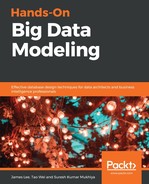CQL is very similar to the SQL used in a traditional database, such as MySQL and Postgre. CQL is implemented as an alternative to the traditional RPC interface. It provides a model close to SQL, in the sense that data is put into tables containing rows of columns. For that reason, when used in this chapter these terms (tables, rows, and columns) have the same definitions that they have in SQL.
CQL appends an abstraction layer that masks the implementation details of its query structure, and presents a native syntax for collections and common encodings. For example, a common syntax for selecting data from a table is given as follows:
select_statement ::= SELECT [ JSON | DISTINCT ] ( select_clause | '*' )
FROM table_name
[ WHERE where_clause ]
[ GROUP BY group_by_clause ]
[ ORDER BY ordering_clause ]
[ PER PARTITION LIMIT (integer | bind_marker) ]
[ LIMIT (integer | bind_marker) ]
[ ALLOW FILTERING ]
select_clause ::= selector [ AS identifier ] ( ',' selector [ AS identifier ] )
selector ::= column_name
| term
| CAST '(' selector AS cql_type ')'
| function_name '(' [ selector ( ',' selector )* ] ')'
| COUNT '(' '*' ')'
where_clause ::= relation ( AND relation )*
relation ::= column_name operator term
'(' column_name ( ',' column_name )* ')' operator tuple_literal
TOKEN '(' column_name ( ',' column_name )* ')' operator term
operator ::= '=' | '<' | '>' | '<=' | '>=' | '!=' | IN | CONTAINS | CONTAINS KEY
group_by_clause ::= column_name ( ',' column_name )*
ordering_clause ::= column_name [ ASC | DESC ] ( ',' column_name [ ASC | DESC ] )*
